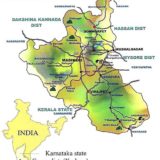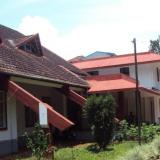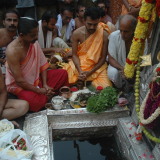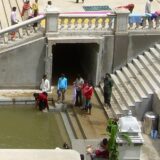IN THE HIGH COURT OF KARNATAKA AT BANGALORE
(Original Jurisdiction)
WP No. /2013
Between
- Brigadier. Maletira. A. Devaiah(Retd.),
Aged about 63years,
Flat No.536, Jalvayu Towers,
NGEF Layout, Indira Nagar Post,
Bangalore-560038
2 . Mr.Palanganda.T. Bopanna
Aged about 63years
144/1, Third Cross, Byrasandra Road,
Jayanagar Ist Block East,
Bangalore-560011
- Mr. Machettira. M. Aiyappa,
Aged about 73years,
No.69, 4th Cross,
LIC Colony, 3rd Block East,
Jayanagar Bangalore-560011
- Mr.Kanganda. K. Beemaiah,
Aged about 82 years,
279,10th Main, 27th Cross, III Block,
Jayanagar, Bangalore-560011
- Mr. Chappanda. K. Nanaiah,
Aged about 68 years,
Kolathodu, Bygodu Village,
Hathur Post,Kodagu-571218
- Mr. Battiyanda. A. Jagadeesh,
Aged 49 years,
Nariyandad Village, Cheyandany Post,
Virajpet, South Coorg
- Colonel. Kalengada. M. Ganapathy,
Aged about 58years,A-102
Malaprabha, National Games Village,
Koramangala Bangalore-560047 —— Petitioners
And
1.State of Karnataka
Rep. by it Secretary,
Department of Revenue,
Vidhan Soudha, Bangalore-1
2. Secretary to Government
Department of Parliamentary
Affairs and legislation,
Vidhan Soudha, Bangalore-1 —— Respondents
Memorandum of Writ Petition under Article 226 of the Constitution of India
Petitioners submit as follows;
All the Petitioners belong to the Kodava race (Coorg race as catagorised by the British when they ruled the present district of Kodagu as a Chief Commissioner’s province before India attained Independence). All the petitioners are representative of their respective okka (family or Petri lineal-clan). Petitioners are all holders of lands under the customary privileged Jamma land tenure system, governed by customary laws that prohibit the partition and alienation of these traditional lands under the Jamma tenure peculiar to the Coorg race/Kodava race. Petitioners are interested in protecting and preserving the traditions culture and customs and the customary laws of the Kodava race. They are also interested in preserving their lands and their environment.
2.The first and seventh petitioners are retired army officers who have put in distinguished service and have served in some of the toughest terrains in defense of the country. The first petitioner is an active environmentalist who during his service at Pokaran and Belgaum, took up massive tree planting and water harvesting work. Both the petitioners are keen on the preservation of the Kodava culture and the Jamma holdings of Kodavas and the nature and environment of Kodagu.
3.The second petitioner is a Freelance Journalist who has earlier worked with a number of national dailies like the times of India and Pioneer (New Delhi) and has also served an International News agency. He has been writing from time to time on the problems of Kodagu. He has authored a number of books including Rise and fall of Coorg State Discover Coorg and Dateline Kodagu. He has been writing about the problems of Coorg as a journalist in order that the voice of Coorg may be heard in the corridors of power.
4.The third, fourth and fifth petitioners are senior citizens who are deeply concerned about the waning traditions of Kodagu. They are interested in preserving the Jamma lands of Kodavas, which is the heritage of their ancestors, and the culture and traditions of the Kodava race for the benefit of the future generation. The third petitioner is a businessman and is the Ex-President of the Jayanagar Kodava Sangha. The fourth petitioner is a retired Director of Public Instructions and the fifth petitioner is a retired Superintendent of Police and is also the Ex-President of the Jayanagar Kodava Welfare Association.
5.The sixth petitioner is a businessman and a social worker who is interested in protecting the Kodava culture and traditions.
6.This writ petition is filed in a representative capacity praying to quash the Karnataka Land Revenue (third) Amendment Act Annexure-A and to uphold and declare the position of customary laws and the customary rights of the Kodava race viz a viz the customary privileged Jamma lands that are abolished by the impugned amendment Annexure-A to the Karnataka Land Revenue Act, which has come as a follow up to the Full Bench judgment of the Karnataka High Court in Cheekere Kariappa Poovaiah Vs. State of Karnataka reported in 1993ILR Kar2959.
7.Both the impugned Amendment Act and the Cheekere case have the affect of negating the customary laws of the Kodava race and thus resulting in the disintegration of the Kodava joint families, their custom, culture and tradition. The customary laws prohibit the partition and alienation of Jamma lands both warg and bane whether alienated or unalienated. That these customary laws were kept alive even during the British rule. At a time when the people of Kodagu were groaning under the atrocities of their tyrannical Raja which even the British did not believe worthy of condonation the take over of the administration by the British came as a welcome relief to their life from abject servitude to the position of master and a state of freedom. The British came out with the following proclamation as found in the Coorg Memoirs an Account of Coorg & The Coorg Mission by Rev.H.Moegling 1850/1855 (hence forth shall be referred to as Coorg Memoirs) at P206. –
Final Proclamation of General Fraser, on Annexation of Coorg
“Whereas it is the unanimous wish of the inhabitants of Coorg to be taken under the protection of the British Government, His Excellency the Right Hon’ble Governor General has been pleased to resolve, that the territory, heretofore governed by Virarajendra Wodear shall be transferred to the Hon’ble Company.
The inhabitants are hereby assured that they shall not gain be subjected to native rule, that their civil & religious usages will be respected, (Emphasis supplied) and that the greatest desire will invariably be shown by the British Government, to augment their security comfort and happiness.”
Sd/-
Camp at Mercara,7th May 1834 J.S.Fraser. Lt.Col. and Political Agent
This is also reflected in the Coorg Land Revenue Regulation1899, (hereinafter referred to as Coorg Regulations) promulgated by the British Government.
Kodavas, are a minority community having a distinct language (without a script), custom and culture, comprising a population of less than 2 lakhs. They belong, as mentioned earlier, to the centrally administered province of Coorg now Kodagu district located on the hilly terrains of the Western Ghats. The Richter’s gazetteer of 1870 (hereinafter referred to as Gazetteer) at Page 117 reads as under;
“The Coorgs or Kodagas as they are properly called are the principal tribe of the country and from time immemorial the lords of the soil.” (Emphasis supplied)
- Agriculture and military service were the only two occupations known to the members of the Kodava race of yester years. Even to this day almost every family has at least one member serving in the army. The Kodavas, the original natives of Kodagu district have a distinct culture and identity, as is evident from the festivals they celebrate like the Ayudha Pooja or Kailmurtha festival, Harvest. Festival or Huthri festival and the worship of the river goddess Cauvery- the Cauvery Sankramana.
10.In A Manual of Coorg Civil Law, 1871 by Major General Rob Cole,(herein after referred to as Cole’s Manual) the then Superintendent of Coorg, which was recognized as an authority on the Coorg Civil Laws by the Madras High Court and the Karnataka high Court observes; “Both Basava and the Brahmans, however, have been unable to make much of the mountain-race of Coorg. To the present day, the Coorg manages to go through life, to be born, to get his name, to marry, to die and to have his body buried or burned, without any assistance from Brahman or Jangama. With the exception of the religious regard paid to the cow by all India, he appears to have learned nothing from the Hinduism of the plains.”
The Gazetteer at Page48 reads as under;
——“The Coorgs like other Hindoos, hold the cow sacred; it is a sort of sentimental veneration for the animal which ploughs the field and mother like, gives milk; —–.The slaughter of kine within the limits of the Coorg Province was distinctly prohibited by General Fraser on the assumption of the administration in the following terms:
To Lieutenant C.F.LeHardy,
Superintendent of Coorg.
Sir, Having ascertained, that it is highly offensive to the religious feelings of the people of Coorg, that cows or bullocks should be killed for the purpose of being used as an article of food, I request, that you will be so good as to prohibit this practice throughout the whole district by any person whether European or native(Emphasis supplied).
J.S. FRASER, Lt.Col. and Commissioner.
MERCARA,16 th January 1835.”
The culture of Kodavas is distinct from other communities in respect of language, attire, worship and life style, as is evident authoritatively in the Cole’s Manual. The Kodava race is the only race in India who are exempt from the Provisions of the Arms Act 1959.This special privilege of holding arms without a licence was granted by the British to persons of Kodava race and Jamma tenure holders in Kodagu District in recognition of their martial traditions. A notification at P365 of the Gazetteer reads as follows;
NOTIFICATION
26th February1861.
“In consideration of the exalted honour, loyalty and intrepidity, characteristic of this little nation of warriors and in recollection of its conspicuous services in aid of the British Government, it is my pleasing duty to notify hereby, for general information, in virtue of the power vested in me by the Government of India, that the provisions of the Act, commonly called the Disarming Act are not applicable to the gallant people of Coorg.”
(Signed) M.CUBBON,
Commissioner.
This was continued after Independence by a notification issued by the Ministry off Home Affairs (MHA Notn.No.F17/4/62-P, IVdt.6.7.63)
Division II – Exemptions, Exclusions and withdrawals
Persons of Coorg race and Jumma tenure holders in Coorg – exempted
II.3. S.O. 1920, dated 6.7.1963 – –
12.Every Kodava okka (family) owned lands in terms of the customary Jamma land tenure comprising both of warg(wetland) and bane lands (dry lands), (“Bane` is the highland adjoining the rice fields and generally clothed with forest from which each farm obtains its firewood, manure, grass etc”- Gazetteer at page402), which they were cultivating even before the Rajas ruled Kodagu came to Coorg in the year 1583. These lands as per custom were attached to the family house or Aiyne Mane from which it could not be detached as per customary law. It was held hereditarily in terms of customary Jamma tenure comprising both wet and dry lands which was recognized and accepted by the Rajas and thereafter by the British. The Gazetteer at page 401reads;
“The Jamma tenure from the sanscrit “janma”, a word conveying the meaning of “hereditary by birth” is the holding of the privileged class, ————”.
Since time immemorial it has been the custom among the Kodavas of Kodagu district, not to own property individually. It remained vested in the Aiyne Mane or family house located in the Jamma bane lands of the family and therefore could not be alienated from the family house nor divided among the family members. The Gazetteer at page 130 reads as follows;
“The landed property or Jamma-pumi, is vested in the house and cannot be alienated from it or divided amongst its members.”
During the time of the Rajas as per the shist records the Jamma lands were registered in the name of the family, of which the patedara was the head of the family, and not in the name of individual members of the family. At page131 of the Gazetteer reads as under; “The law of primogeniture however now prevails and division is strictly prohibited.”
In Coles Manual in the Chapter on, Charges on Property at Chapter. VII, Section139reads as follows;
“Managing member. – The managing member or the head of a house is answerable for all claims against the family out of the family funds; but, except mortgaging, he cannot sell landed property, or borrow or incur greater expense than five rupees without informing the leading members of the family. Should he do so, he becomes personally responsible. All such debts not settled in his own day must be known to the others.”
This is the joint family tradition which continues even to this day.
14.It is thus customary among the Kodava race that the Jamma property of Kodava families could never be partitioned nor be alienated as this would result in the disintegration of the joint family system among the Kodavas. In Coles Manual, in chapter VI, on Alienation, “Section115 reads as under;
“Alienation not allowed- Division of property is not recognized among Coorgs, and no one can alienate any property, landed or personal, without the consent of all the members of the family. A father cannot alienate landed property, whether ancestral or self acquired, without the consent of his sons and grandsons.”
In chapter X of Coles Manual on Partition, Section.160 reads as follows;.-
“Partition not allowed:- It was not customary among Coorgs to acquire or hold land, houses, separately. Since about 1805 however, some families quarreled and appealed to the former Rajas, who directed that they should, in accordance with Hindu law, be allowed to divide. Subsequent to our assumption of the government of the country, several other families have similarly applied to the courts, and obtained decrees for partition; whilst others have divided off amicably amongst themselves. In 1858 the Thakkas and headmen of the Coorgs represented the loss and ruin occasioned to their ancient houses by this innovation and system of partition; and the Judicial Commissioner, in additional Special Appeal Suit No.117 of 1858-59, passed a decree, declaring that division was contrary to the ancient custom of Coorg, and ever since division has been strictly interdicted.” (Emphasis supplied)
15.Thus Kodavas follow a joint family tradition even to this day. Though the members of the joint family eat and reside separately they get together annually at the Aiyne Mane or family house and on all special occasions and events in the family like celebrations of festivals, marriage, birth and death and the performance of funeral rites and obsequies etc. to worship and make their offerings to their ancestors. Every member of the family is equally responsible for the conduct of these events.
In Coorg Memoirs at P.62. it is observed;
“The principal place in Coorg-idolatry is held by the worship of the dead. Every family offers a sacrifice to the departed ancestors once a year, sometime during the 2 months preceding the monsoon. A fowl generally a cock, is offered on these occasions, upon a stone devoted to the Karonas somewhere in the jungle land belonging to the family estate (emphasis supplied)”.
The kodavas are ancestor worshipers. Every Kodava family has a quite spot on their bane lands for their Karona or family’s ancestors where a kaimada, or temple is built. The members of Kodava family gather annually and on all important family events at the kaimada, or the temple built for the Karona or family’s ancestors, to make their offerings of food and drink. That unlike other communities who have a mutt headed by a swamy as their guru the Kodava race has as their guru, their family’s guru karona or ancestor towards whom the Kodava turns to in good and bad times and in times of need and difficulties. In these little temples Kola or Barani is annually performed which is a big event in the family to which the whole village community gathers.
16.Every family has its own family graveyard in a part of the bane lands belonging to the family. The family also comes together annually to make their offerings at the family graveyard.
17.The kaimada, the family grave yard and the Aiyne Mane are all located on the Jamma bane lands or jungle lands belonging to the family for centuries, on to which is attached the religious sentiments of every Kodava.
18.Apart from these there are other religious observances connected with the Jamma bane land. Each bane belonging to the family has a presiding deity for which annual prayer and offerings are made. There is a Natha kale` which is a place of worship on the estate of a Kodava family which is marked by a stone. This is supposed to be a spot on which cobra capellas have finished their course of terrestrial life. Every year during the month of scorpio in the month of November –December a lamp is lighted every evening to the natha and coconuts are offered as oblations.
19.That, apart from these monuments of religious sentiments the Jamma banes housed a barn or barns for the cattle, a threshing floor for paddy, for cultivation of vegetables and fruits to meet the needs of the family. All these go to show the self contained life style of the Jamma land holders within their Jamma lands that met their material and spiritual needs.
20.That even before the Rule of the Rajas, the Kodavas owned their lands. But there was no title deed for their lands. They were becoming victims of land grabbing, during the times of the Rajas. Therefore the Kodavas requested the Raja to give them title deeds for their lands. The Raja gave them a Sannad which said that the Jamma property which they were cultivating including both warg and bane shall be enjoyed by them and their descendants so long as the sun and moon exists. The Rajas in return for the Sannad, demanded from the Kodavas, military service and the kodavas would have to pay only half the assessment charged for the sagu land, as no salary was paid by the Rajas for the military service.
21.This description of Jamma properties in the oldest Sannad dating back to 1809 heralds the existence of hereditary private property in Kodagu which includes both bane and wetlands, which had been distorted over the centuries resulting in grave harm and injustice to the Kodavas. Lieutenant. Connor’s in his survey report of 1815 observed;
“Jamma holders had at some former time held a more complete form of private property in Coorg analogous to Malabar but the despotic rule of the Rajas reduced it to hereditary right of occupancy.”
Further, Lieutenant Connor in his book- Memoir of the Codugu Survey Part II at P.26 observes;
“The arable lands in most instance are tolerably equally divided, there being no great jagheerdars or considerable land holders; … the troubles to which it had been exposed appears to have had the effect of an Agrarian law in equalizing this kind of property, the cultivated lands are occupied in severalty, but the wood and pasturage within the boundaries of the village (itself a little community) are the common possessions of those inhabiting it.”
At page 29 of his book Memoir of the Codugu Survey Connor’s writes about tenures thus;
“The protracted vicissitudes to which this principality was subject during the reigns of Hyder and his son, the destructive inroads of the former and rigorous severity of the latter, which at one time nearly extirpated or carried away the whole of the inhabitants, appears with them in some measure to have destroyed the remembrance of private property in land, at least that undoubted right by which the proprietor alienates his estate without restriction. The late Rajah on again coming to authority divided all the arable lands amongst his adherents; many of the original owners no longer existed. On the appearance however of such claimants they were invariably reinstated in their patrimony, thus in some measure admitting a right in the soil; such a right however was understood as rather authorized by long custom, than originating from any claim of a more abstract nature.” (emphasis supplied)
Regarding Private property Connor’s writes at page 29; “In Codagu proper the proprietor cannot sell or devise his lands ; they have nevertheless generally in a practical sense, every other characteristic of landed property retained by prescriptive right :they are transmitted to their descendants, looked on as an heritage (emphasis supplied) that in justice could not be disputed, and equally valued as if held by a more legitimate tenure, possession rarely fluctuates, property of this nature is subject to no additional imposts, and the cultivator while he continues to pay his proportion of the annual assessment cannot without a violation of established prejudices, be removed without his consent; such a tenure gives as much of the security of permanency to property as can be expected in a country where the will of the ruling chief is uncontrolled by law; (emphasis supplied) but the transfer of land by sale or conveyance, without which it cannot be considered as private property, is as far as I have been able to learn in no instance practiced, indeed property of this nature does not often change its possessors, and when it does, the sanction of the chief is requisite, in whom consequently must now exist the abstract right in the soil (emphasis supplied).”
P30 Connor’s writes;
“… the attachment of the people to their fields evince, that the sentiments necessarily attendant on this species of possession have undergone no alteration (emphasis supplied)—”
22.Thus the Jamma holders are rightful owners of their wet and bane lands and during the times of the Rajas were given some concessions in land revenue in return for military service. The Gazetteer at page251reads as under;
“The Jamma Coorgs holding their land (emphasis supplied) by a military tenure in return for the immunities which they enjoyed, —–”.
At page 401 the Gazetteer reads as follows;
” The light assessment of Rs.5/- per 100butties of wet land with its accompanying bane (emphasis supplied) and Barike’ was made originally on condition of military and general service to the state.”
At page405 the Gazetteer reads;
“The farms produce also oranges, vegetables and coffee free of tax (emphasis supplied) on plots of bane` land less than ten acres, which add to the income of the proprietor (emphasis supplied)”—–.
In the land survey conducted by the British in 1863, the cost of survey was borne by the planters as fixed by the government. This again evidences the existence of private ownership of the Jamma holders over their bane lands. This goes to show that the bane lands were not held free of assessment by Kodavas and they were full fledged owners of their bane lands.
The Gazetteer at page410 reads as under;
“With the year 1866-67 a new source of land revenue arose from the assessment on land taken up for coffee cultivation. After much deliberations and correspondence on the part of the ‘Coorg Planters Association and government, the latter finally resolved in October 1863 to abolish the Halut or excise duty of 4as per mound of 28lbs or one rupee per hundred weight of clean coffee and to substitute on acreage rental——”. Thus what excise duty was charged on the quantum of production of coffee was replaced by an acreage payment on the cultivated lands.
Page 416 of the Gazetteer gives the Amended Rules for carrying out the substitution of acreage on Coffee lands for the Halut or excise duty in 1864.
Clause XII of these rules reads as follows;
“The Bane-lands of the Coorgs being included in their Sannads as part of a tenure with a permanently fixed rent, and assigned hereditarily to them for ever, not to be subject to the assessment of coffee lands; unless when cultivation is over 10acres, such land be separated from the varga or farm.”
This goes to show that the Kodava families enjoyed full proprietary rights over their bane lands. But unfortunately this historic fact has been diluted by wrong interpretations of the Kodava customary law by judicial pronouncements.
The Customary Jamma tenure, comprising both of warg and bane lands, a land holding attached by custom to the family house or Aiyne Mane held by a title deed called the Sannad and governed by customary laws was accepted, recognized and honoured both by the then Rajas and the British as the law of the realm. During the British regime it was obligatory to register their Jamma Sannads. The Rajas and the British who came thereafter accepted this traditional tenure and also granted lands to people of Kodava race in terms of this traditional Jamma tenure, both wet and bane lands which are entered in the Sannads to be enjoyed hereditarily, and in accordance with the Kodava customary laws that prohibit alienation and partition of these Jamma lands owing to its attachment to the joint family house.
24.The Jamma land tenure is recognized as privileged land tenure held by persons of Kodava race. According to B.H. Baden Powell in his book The Land Systems of British India, land could not be held on this tenure except by the privileged class. According to Baden Powell Kodavas were the ruling class who after the Rajas took over Kodagu held on to their lands as landlords with the privilege of paying half the full revenue. The privileged tenure holders in return would offer military service. Jamma is now a proprietary tenure distinguished by paying only half the ordinary assessment. That proves Kodavas were free to practice their customary laws pertaining to these privileged Jamma lands.
25.This customary Jamma tenure is also accompanied by certain other privileges on the bane lands. That the Jamma holders could cultivate up to ten acres of their Jamma bane lands free of assessment for coffee grown on that land for the benefit of the proprietor, over and above a minimum of 15 acres of bane which could not be separated from the warg as it was meant for the service of the warg. The cultivation of coffee without clearing the forest cover in primeval shade may also be permitted free of assessment.
26.The word privileged is not defined in any Act. The word is used to describe the rights and enjoyment of the traditional land tenure and its customary laws from times immemorial by the Kodava race.
27.That any cultivation of coffee on Jamma bane lands over and above 10 acres was charged halut duty or excise duty, which later was fixed in terms of acreage value. This part of the bane on being put under cultivation, and subject to assessment of excise duty in terms of acreage value would be considered as separated from the warg having been put to cultivation, Nowhere is it said that this land as separated by cultivation, ceased to be the customary Jamma holding governed by the customary laws that prohibit partition and alienation. This rule of limiting the privileges to ten acres, separation from the warg, and fixing of assessment was brought in by the British in order to discourage the cultivation of coffee as it was not conducive for protecting the tree growth on the bane lands. It is not possible therefore to conclude that the nature of Jamma tenure ceases and these lands would go out of the purview of the customary laws, which is opposed to alienation and partition of the traditional land tenure. The privileged tenures covered by Regulation164 of the Coorg Land Revenue Regulation1899 includes lands subject to full assessment.
28.That the Coorg Land Revenue Regulation1899(in short the Coorg Regulations) and its accompanying Rules protected and preserved the traditional Jamma land tenure its privileges and its customary laws by providing for the prohibition of partition and alienation of Jamma Lands and thus protecting the custom and culture of a small race.
- The preamble to the Coorg Regulations reads thus;
“A Regulation to amend and declare the law in force I Coorg in respect of the land and revenue.”
Therefore the Regulations are not just about procedures but also about the Substantive law in force in Coorg with regard to lands held by the Jamma holders. The customary laws in force in Coorg with regard to the traditional Jamma tenures are part of these Regulations. These regulations are protected under certain sections of the Karnataka Land Revenue Act (KLR Act).
30.Regulations 45 under the Coorg Regulations prohibits alienation, It reads as follows; “45.Summary eviction incase of alienation of certain lands:-Except with the permission of the Assistant Commissioner recorded in each case in writing under the general or special orders of the State Government, the alienation of lands of which the land revenue has been wholly or partly assigned or released by sale, gift, mortguage or otherwise, also sales gifts or mortgages or release of maintenance shares of such lands in a family Patta in favour of the members of the same family are prohibited and the Assistant Commissioner may summarily evict any person from such lands if so alienated and take possession of them on behalf of the government.
Family for the purpose of this section means and includes direct descendants in the male line of the original grantee of the land.”
- Regulation110 in Chapter IX on Collection of Land Revenue and other Demands reads as follows;
“Effect of sale on lands held revenue-free or at favourable rates:-When Jamma or Umbli land, or other lands held wholly or partially free of revenue, is sold under this Chapter, whether for the recovery of an arrear due in respect thereof or for the recovery of any other sum, the privileges attaching to the tenure of the land with respect to the assessment of land revenue shall be extinguished by the sale.
Provided that in the case of land the revenue of which is assigned to a temple or other institution, the assignment to the temple or institution shall not be affected thereby.”
32.Thus as per this Regulation in the chapter on collection of land revenue it is only upon sale of Jamma lands for the sake of revenue recovery, that the land would lose the privilege attached in respect of land revenue assessment.
- Regulation143 (1) (e) and (f) reads as under;
“Power to make Rules (1) The State Government may in addition to the other rules ,which may be made by it under this Regulation, make rules, not inconsistent with this Regulation, or with any other enactment for the time being in force:-
(e) permitting and regulating the partition of interests in land, carrying out such partition and giving any directions consequent thereon, in cases in which the cognizance of the Civil Courts is barred by clause (xv) of Section 145:
(f) provides for laying down rules governing partition, and Regulation 145(xv) bars partition suits before a civil court.”
- Regulation 145reads as under;
Bar of suits in certain matters:- Except as otherwise provided by this Regulation, no suit shall be brought in any Civil Court in respect of any of the following matters, namely:- —
(xv) any claim for the partition of an estate or holding or any question as to the allotment of land, when such estate, holding or land is one of which the land revenue has been wholly or partly assigned or released , or which is held as joint family property by persons of the Coorg race, (Emphasis Supplied) or any claim for the distribution of land revenue on partition, or any other question connected therewith, not being a question as to the partability of, or the title to, the property of which partition is sought.”
35.The relevant Rules under the Coorg Land Revenue Regulation for implementation of the customary laws under the Coorg Land Revenue Regulation are;
36.Rule97(2) “The Assistant Commissioner may permit the alienation or cultivation of banes on the conditions noted in Rule 136.If it appears to him that such alienation or cultivation of bane lands will interfere with the tree-growth, he shall not give such permission except on payment of full timber-value, under the procedure noted in clause (I-A)above. If he is of the opinion that such alienation or cultivation will not interfere with the tree-growth, he may give permission for it, but no tree shall be cut subsequently on the land, except for the service of such wet land as is attached to the bane and for the private use of the wargdar without the permission of the Assistant Commissioner and payment of timber-value. If there is no objection to the grant of permission for the cultivation of bane which will entail the felling of the tree growth, and the applicant is unable to pay the timber–value, the Assistant Commissioner may, at the request of the applicant, order the Forest Department to remove all valuable trees which they require, and the applicant shall be entitled to cultivate the land after they have done so. ”
37.Rule 97(2) is about discretion of the Assistant commissioner to permit the alienation or cultivation of banes with intent to discourage interference with tree growth.
- Rule135 “Land granted on bane tenure.-(1) Land is granted on bane tenure to facilitate the cultivation of wetland granted under Rules 128 and 129 or sold under Rule142, (a) in the case of wet land previously allotted to that wetland as may be unoccupied, (b) in case of wet land not previously prepared for cultivation (hosagame), from any unoccupied unassessed land in the vicinity of the wetland.
(2) Conditions for grant of bane.-Grant of bane is subject to the following restrictions.-
(a) It shall not be made in the defunct Hoblis of Nanjarajapatna Kanve (Fraserpet Hobli) and Nidtha and Kodli(Sanivarasante Hobli)where the tenure is not recognized;
(b)It shall not be made until the wet land has been properly prepared for a wet crop, and the crop sown upon it;
©The areas of land so granted shall not be greater than 15 acres or twice the area of the wet land in respect of which it is granted, whichever is less.”
The land granted on bane tenure under this section is against grants of wetland already made.
- 39. Rule136.-“Conditions for the occupation and cultivation of unprivileged bane.- The Assistant Commissioner may permit the separation or alienation of bane on the following terms.-
(i)The conditions noted in Rule134 (1) and (2) will apply;
(ii)(a)If the wetland or any part of it is permanently alienated, the bane or a proportionate part will be transferred with it;
(b)On the separation of bane from the wet land to which it was previously attached, whether by the alienation of the bane and retention of the wet land or vice versa, the bane tenure will cease and the land will be assessed at an occupation rate of 4annas per acre;
© The minimum area of bane, the separation of which from the wetland is prohibited is twice the area of the wet land subject to a minimum of 15acres;
(d)The separation or alienation of bane with the permission of the Assistant Commissioner is subject to the conditions noted in the rule 97(2);
(e)If the wet land is deprived of bane is excess of the minimum area allowed under ©,the portion of bane improperly detached will be liable to penal assessment under rule 149(2);
(iii) The Assistant Commissioner s may permit the cultivation of bane on the following terms
(a)Such cases as may appear to the Assistant Commissioner unobjectionable on payment of assessment under the provisions of Rule 149 and after survey and demarcation;
Provided that where land held as bane is suitable for cultivation of rice or other wet crop such cultivation shall be permitted without limit on condition that the land so cultivated be separately surveyed and assessed at full sagu rates and its tenure noted as sagu.
(b)The Assistant Commissioner may allow the concessions noted in rules 126 and 145;
©Cultivation of not more then 10acres of bane granted to genuine cultivating ryots before the 21st May 1886 and still held by them or by their representatives by succession is allowed free of assessment provided that the land to be cultivated in a compact block;
(d)The cultivation of bane with the permission of the Assistant Commissioner is subject to the conditions noted in rule 97(2);
(iv)The Assistant Commissioner may, before giving permission for the separation alienation or cultivation of bane recover in advance from the applicant the cost of any survey or demarcation may have to be made on the land. The advance will be adjusted towards the actual cost when the survey and demarcation is completed.
(v)Separation, alienation or cultivation of bane without the permission of the Assistant Commissioner will entail the imposition of penal assessment and the payment of full timber-value:
Provided that, in unobjectionable cases the Assistant Commissioner shall have discretion not to charge penal assessment, and may allow concessions at half the rate but for the full period admissible under Rule 126.”
40.Rule 136 pertain to the conditions for the occupation and cultivation of unprivileged bane. In this section there is restraint on separating the bane from the warg.
- 41. Chapter VI “Lands Held on Privileged Tenure[Sections 45 and 143(1)(f)]
R164. Jama, Umbli, Bhatamanya and Jaghir lands.-(1)The Assistant Commissioner may permit the alienation of Jama, Umbli, Bhatamanya and Jaghir lands1[and also sale, gift, mortgage or release of maintenance shares of such lands in a family patta other than bhatamanya lands in favour of the members of the same family]in the following circumstances , without reference to the Chief Commissioner.-
(a) Subletting of wet land for not more than 15years, with a proportionate part of the attached bane, if desired;
(b)Mortgage as security for loans advanced by Government under the Land Improvement Loans Act, 1883, or the Agriculturists ‘Loans Act, 1884, as amended by Coorg Act III of 1936;
©Mortgage as security for loans advance by Co-operative Credit Societies for the purposes for which loans might have been made under those Acts;
(d)Exchange for lands held on privileged tenure or on full assessment (emphasis supplied) on condition that the transaction is to the mutual advantage of the party or parties concerned, the lands exchanged are approximately equal in value and the transfer is ratified by the performance of the ghatti ceremony. In such case, the tenure will change with the ownership; (emphasis supplied)
(e)Hypothecation for not more than 15years, of future crops. The mortgagee may be required to give security for the payment of revenue during the currency of the mortgage. (No permission is required for the Hypothecation of standing crops);
(f)The permanent alienation of Bhatamanya lands to a Brahmin;
2[(g)Sale, gift, mortgage or release of maintenance shares of jama, umbli, or jaghir lands in a family patta in favour of the members of the same family and where there are minors, the guardians, agree to the transaction.]
(2) If such land is leased without the permission of the Assistant Commissioner, he shall refer the case to the Chief Commissioner for orders. The Chief Commissioner may either.-
(a) Resume the land and, if he thinks fit, regrant it to the occupier on sagu tenure; or
(b) Charge sagu rate for the term of the lease, in which case the privileged rate shall ordinarily be revived on termination of the lease; or
© If the circumstances are unobjectionable, give sanction to the lease, the privileged rate being maintained.
(3)If the Chief Commissioner resumes land and regrants it to the occupier under clause (2)(a) above, he may, before the regrant is made, recover land and timber–value under the ordinary provisions of the rules, or a proportion of such value as he thinks reasonable.
(4)Lands held on waram tenure (i.e., sublet for short periods on terms of a division of cro(4)In other respects the provisions of Rule 136 and 139 apply to privileged banes and hitlus.”
- That Rule 167(1) cannot be read independently of Rule 164 of the Rules under Coorg Regulation. The alienator under Rule 167(1) will have to get the permission of all the of the adult members of the family under Rule 164(1)(g),then seek the permission of the Assistant Commissioner. Thereafter he could alienate after paying 20% of the market value as nazrana to the government p between land holder and tenant) will not be deemed to be alienated within the meaning of section45 of the Coorg Land Revenue Regulation.”
42.Chapter VI of the Rules is devoted to lands held on privileged tenure in which Rule 164 states that permission of the Assistant Commissioner, should be obtained for the alienation within the family of Jamma Umbli, Bhatamanya and Jaghir lands, both wet and dry lands.
- Rule 167(1) “Privileged wet, bane or hithlu lands.-(1) The alienator of privileged wet, bane or hithlu lands shall pay to the Government as Nazrana, a sum equal to twenty per cent of the market value of the land alienated.
(2)Jaghir banes and hitlu may be cultivated free of assessment without limit, and without the permission of the Assistant Commissioner.
(3)On the hitlus of Yedavanad specified in the Rajas sist accounts, and not alienated by their original grantees or their representatives, cultivation of not more than 10acres is allowed free of assessment: Provided that the land so cultivated shall be in a compact block.
45.That chapter VI of the Rules under Coorg Regulations is devoted to Lands held on privileged tenure which is laid down for the benefit of Regulation45 and 143(1)(f) and 145of the Coorg Regulations. It is also necessary to read Regulation145along with the other Regulations as it refers to the Coorg race. Rule 164 in Chapter VI explains the real nature of alienation that is permitted, such as subletting of wet lands, mortguage as security for loans, exchange for lands for mutual advantage. Sale gift, mortguage or release of maintenance share all within the family. Nazrana of 20% of the market value will have to be paid in case of sale only, under Rule 167 in the same chapter. This explanation is fortified by Regulation 110 which pertains to sale of privileged lands only for the purpose of recovery of arrears of revenue or for recovery of any other sum by the government and only then the nature of privileged tenure gets extinguished.
- There can be no other form of alienation including in the case of so called fully assessed bane land as the same does not lose its nature of Jamma once it is put to cultivation. It continues to remain attached to the family house or Ayine Mane as per custom and continues to be governed by Chapter VI of the Rules under the Coorg Regulation.
47.The word alienation that is used in the Coorg Regulations only means separation of bane from warg by subjecting the land to cultivation and not sale.
48.In the Definitions of vernacular, technical and other terms contained in the Revenue Rules under the Rules under the Coorg Regulation the government lands are classified as Paisari Lands and does not include the Jamma bane lands. Therefore these lands cannot be taken as grants made by government free of revenue for service of warg. The Jamma banes are included in the Sannads of the holder to be enjoyed hereditarily which means the holder is the owner of the land being the accepted customary tenure amongst the Kodava race. The definitions of vernacular, technical and other terms contained in the Revenue rules under Rules under the Coorg Regulation makes a distinction between bane and Jamma bane which requires to be taken note of. Bane was given as grants to sagu holders for a fixed length of time but it was not included in their Sannads.
49.The Karnataka Land Revenue Act 1964 (KLR Act) while repealing the Coorg Regulation has provided corresponding provisions to preserve the customary Jamma tenure of the Kodava Community, thus saving the customary privileged Jamma land tenure. But the impugned amendment Act has the affect of nullifying it.
50.That Sn 202(4) of the KLR Act reads;
Section202(4) Any custom, usage or order prevailing in any area of the state at the time of the commencement of this Act, and having the force of law therein shall, if such custom, usage or order is repugnant to, or inconsistent with any of the provisions of this Act, cease to be operative to the extent of such repugnancy or inconsistency.”
The customary laws as provided for under the repealed Coorg Regulations prohibiting the partition and alienation of Jamma lands are not inconsistent with the provisions of the KLR Act, but instead corresponding provisions are provided under the KLR Act.
51.That Section of the KLR Act reads;
Section202(1)(b).-The enactments specified in the schedule, and any other law corresponding to this Act are hereby repealed:
Provided that subject to the provisions of this Act, the repeal shall not affect:
(b)any right, privilege, obligation or liability acquired , accrued or incurred under such enactment or law;
52.That Sn 202(1)(b) of the KLR Act will apply to the privileges enjoyed by custom, customary rights and laws which is consistent with Sn79(2),87(3) and also Sn 100 of the KLR Act which has not been examined by the Full Bench.
53.Section79(2) of the KLR Act reads;
Section79(2).-Regulation of supply of firewood and timber for domestic or other purposes.-
(2) Not withstanding anything contained in sub-section(1)but subject to such general orders that may be issued by the State Government from time to time, the privileges that are being enjoyed either by custom or under any order such as privileges in respect of Kumki lands, Bane lands and Kane lands in South Kanara District, Betta lands and Hadi Lands in North Kanara District, Kan and Soppina Betta lands in Mysore Area, Jamma and Bane in Coorg District and 1[Motashal wet Lands] in Hyderabad Area shall continue.
54.Section87(3) of the KLR Act reads;
Section87(3).-Land Revenue to be a paramount charge on the land:
(3) Such occupancy or holding, when disposed of, whether by sale as aforesaid or otherwise under rules referred to in sub-section(2)except by restoration to the defaulter, shall, unless the 1[Tahsildar] otherwise directs, be deemed to be freed from all tenure, rights, encumbrances and equities therefor created by the occupant or holder or any of his predecessors in title in favour of any person other than the Government or in any way subsisting against such occupant or holder, but so as not to effect the rights of kadim tenants or permanent tenants in alienated holdings in respect of such occupancy or holding.
55.Section100. of the KLR Act reads;
Section100.-Occupancy not transferable without sanction of prescribed authority non liable to process of a Civil Court.- In any case, where an occupancy is not transferable without the previous sanction of the prescribed authority and such sanction has been granted to a transfer which has been made or ordered by a civil Court or on which the court’s decree or order is founded;
(a)such occupancy shall not be liable to the process of any court and such transfer shall be null and void;
And
(b)the court, on receipt of a certificate under the hand and seal of the Tahsildar to the effect that any such occupancy is not transferable without the previous sanction of the prescribed authority and that such sanction has not been granted shall remove the attachment or other process placed on or set-aside any sale of or affecting such occupancy.
56.That the Jamma wargs, Bane and Hithlu lands are privileged tenures enjoyed by custom which is provided for in the Regulation is conserved under Sn79(2),87(3),100, 202(1)(b) and Sn.202(4)of the KLR Act.
The customary laws pertaining to these privileged lands prohibiting the partition and alienation of Jamma lands inclusive of wargs and Bane both un-alienated and alienated, privileged or unprivileged were continued even after the repeal of the Coorg Regulation as it was not in any way inconsistent or opposed to the provisions of the KLR Act.
That the customary laws as provided for in the repealed Coorg Regulations does not get obliterated by the repeal of the Coorg Regulations in view of Sn202(1)(b) of the KLR Act. This was acknowledged in the various judicial precedents (see 1971(2) Mys.LJ520 and 1979 (2) Kar. LJ 22) of this Hon’ble court and the cultural significance of these customary privileged, Jamma tenure and the customary laws remained undisturbed.
59.But in the Full Bench decision of this Hon’ble court in Cheekere case, reported in 1993ILR Kar2959, the customary laws of the Kodavas appears to have been abolished. The issue before the court in Cheekere case was about an individual/petitioner who had purchased a Jamma bane land cultivated with coffee and assessed to land revenue seeking a direction to the authorities to mutate the bane land in his name. The petitioner in that case also challenged a letter of the government in which it was said that bane lands were Government land and another circular of the government directing the sub-registrar to refuse to register any documents and sale deeds relating to the sale of Jamma Bane lands covered under Rule 164 of Coorg Land Revenue Regulations as per which such lands cannot be alienated without prior permission of the authorities.
60.The points that came up for consideration in the Cheekere case:
1.Are the holders of the Bane Lands in Coorg upon Jamma tenure, the owners there of?
2.Whether Rule167(1) of the Coorg Land Revenue Regulation 1899, continues in operation despite the repeal of the Regulation by Karnataka Land Revenue Act 1964?
61.The Full Bench answered point No.1 in the negative. The court held as follows; “———– that holders of Jamma Bane lands both privileged and unprivileged are not full owners thereof but have limited privileges qua these lands as indicated above, subject to the rider that once these Jamma Bane Lands became alienated Bane, the holders of such alienated Bane became entitled to the rights and obligations of occupants of unalienated fully assessed lands and were governed for that purpose by the provisions of the Coorg Land and Revenue Regulations so long as they held the field and thereafter they were entitled to the rights and subject to the obligations of the holder and occupant of unalienated fully assessed lands as per the Karnataka Land Revenue Act,1964. ”
62.The full Bench while dealing with point No.2 placed reliance on a judgment of the constitutional bench of the Supreme Court in the case of Keshavan Madhava Menon Vs.The State of BombayAIR1951SC 128 held “that once a statute is repealed it gets obliterated from the statute book and consequently neither the statute nor any rules there under could be relied upon for covering future transactions.—“Section167(1) of the Coorg Land Revenue Rules after the regulation itself was repealed by the 1964Act cannot be sustained and must be rejected..——–
—–Only such rule or regulation under the erstwhile repealed Coorg Regulation would continue after the repeal of the Regulation which will have a corresponding provision in the Karnataka Act. ————–
—-There is no such provision on this aspect Consequently, Rule 167framed under Coorg Regulation could not be saved under Section202(2) as sought to be contended by the learned senior counsel for the state.—————
——-In the present case there is an express provision providing other wise as found in Section 202(2) of the Karnataka Act ——-
The upshot of this discussion is that Rule framed under the Coorg Regulation would not survive after the repeal of Coorg Regulation by Karnataka Land Revenue Act, 1964.”
63.That the judgment of the Full Bench in Cheekere Case has read Rule 167 of the Coorg Land Revenue Regulation in isolation resulting in the court being swerved away by the true spirit and intendment of the legislature and the court being unable to connect to Sn202(1)(b) of the KLR Act. This has affected the customary laws of the Kodava people thus denying the constitutional right to practice their customs and culture and the preservation of their lands held under the Jamma tenure.
The Full Bench while dealing with Rule 167 of the Coorg Regulations failed to note that Rule 167 had no independent existence and it ought to have been read along with Rule164 of Rules under the Coorg Regulations. The intendment of the Regulations 45, 110, 143(e)(f) and 145 is met by the rules laid down in Rule 97,136,164 and 167(1) of the Rules under the Coorg Regulations. That rule 167(1) is a deterrent provision preserving the customary laws of holders of privileged tenures.
- The decision of the Full Bench is per incuriam in as much as it is inconsistent with the laws in force in terms of the above Regulations and Rules framed under the Coorg Regulations and the corresponding provisions under the KLR Act. The Full Bench misdirected itself while considering the repeal of the Coorg Regulations without referring to the corresponding provisions in the KLR Act resulting in erroneous conclusion. The Full Bench failed to make a distinction between the procedural law and substantive law.
66.That since the Full Bench in Cheekere Case did not take up these regulations and Rules together it could not relate to the requirement of Sn202(1)(b) of the KLR Act. Besides, the corresponding provisions were at Sn79(2), Sn87(3), Sn 100 and Sn 202(4) of KLR Act. The court therefore erroneously held that the Coorg Regulations stand wholly repealed. The customary laws not being opposed to or inconsistent with the provisions of the KLR Act is saved by Sn 202(4) of the KLR Act. The Full Bench reached its conclusion without considering these provisions of law. Therefore the Full Bench judgment is per incuriam.
The Full Bench fell in error in drawing its conclusion that there was no corresponding law in the KLR 1964.
68.The Full Bench failed to notice that the first petitioner in that case was seeking the transfer of patta of a Jamma bane land purchased by a registered sale deed contrary to the provisions of Rule 164 pertaining to privileged tenures under the Coorg Regulations. The Full bench decision is per incuriam also because the Full Bench failed to examine Rule 164 of the Coorg Regulations which was referred to in Annexure F which was under challenge in that case.
69.The Full Bench failed to consider the fact that it was the custom among the Kodavas, of holding lands attached to their family houses, to be enjoyed by birth only, called the Jamma tenure, comprising of wet lands and its adjoining dry or bane lands, supported by a title deed called Sannad, which was acknowledged, accepted and recognized law of the land, in Kodagu.
70.The Full Bench failed to take note that the Rajas and thereafter the British accepted this customary tenure prevailing among the Kodavas as the law of the land, they also granted lands comprising of both wet land and bane land in terms of Jamma tenure to the Kodava race, the same being entered in their Sannads to be enjoyed hereditarily.
71.The Full Bench did not take note of the fact that the Jamma Sannad is a lawful title deed recognized and accepted by the British which directed the obligatory registration of these Jamma Sannads. The court erred in holding that the East India Company did not recognize the Sannads which included the bane attached to the wet lands, to be enjoyed hereditarily, though the Sannad issued by the British representative Mark Cubbon in 1842 is reproduced in the judgment.
72.The customary law on the Jamma tenure became accepted law during the time of the Rajas and the British which the Full Bench brushed aside as having no legal efficacy.
73 The fact that Jamma properties are privileged tenures held by a privileged class i.e. the Kodava race who were the ruling class before the Rajas took over Coorg was not taken note of by the Full Bench.
74.The Full Bench has erroneously decided the proprietary right over the Jamma bane lands on the basis of assessments fixed by the British. The Full Bench‘s failed to notice the fact that the different assessments on bane lands was made with intention to discourage cultivation of coffee on bane lands which were covered with forest. The forests on the bane lands were being cleared to cultivate coffee. Therefore the British regulated the cultivation on the bane lands by laying restrictions on the cultivation. A minimum of 15 acres of bane lands were fixed for the servicing of the wet lands. Thereafter 10 acres of coffee cultivation after clearing of forest on bane lands was allowed free of assessment for the benefit and use of the joint family. The assistant commissioner may permit another10 acres of coffee free of assessment in primeval shade without clearing the forest. Any cultivation above this had no privileges attached and would be subject to full assessment and also a penal assessment. A reading of Regulation 97(2) and 136 from the Coorg Regulations1899 will throw light on the fact of regulating the use of bane and protecting forest cover. The court erred in not noticing that Coorg Regulations laid down the law in force in respect to land and revenue.
75.The Full Bench failed to notice that revenue was collected out of the yield of the land as Rs 5 per 100 butties of paddy which was tax against the warg and bane used in the service of the wet land. So also originally Halut or excise duty of 4 anas. per maund of 28lbs., or one rupee per hundred weight of clean coffee was charged. This was later substituted by an acreage rental. In the year 1845 the British encouraged the cultivation of coffee by granting lands when they found the depletion of forest cover they began laying restriction on the cultivation on bane lands. In the year 1895 the British put a stop to the grant of lands for the cultivation of Coffee. These restrictions have been misread by the Full Bench to mean that the Jamma holders did not have full proprietary right over the banes.
76.The Full Bench failed to notice that the nature of Jamma tenure never altered except in cases covered under Regulation 110 when the Jamma land is sold for clearing government dues. A similar section is seen in Sn87(3) of the KLR Act.
77.The court failed to notice that though coffee on unprivileged Jamma bane land attracted full assessment it continued to be a privileged tenure under Regulation164 of the Coorg Regulations, the alienation of which was prohibited.
78.The Full Bench failed to take note of the fact that as far as Rule 167(1) is concerned it is a liability or obligation acquired by the holder of the land as per Sn202(1)(b) of the KLR Act by virtue of being alienator of land under the privileged tenure covered under Regulation 164 of Coorg Regulations.
79.The Full Bench is per incuriam also because it failed to distinguish between rules under the Regulations that applied to bane lands under different tenures and those bane lands which were part of a privileged tenure. The Full Bench failed draw the distinction between Rule 135 of the Coorg Regulations which is about land granted on Bane tenure and Rule 164 which includes Banes under the privileged tenures.
80.That the Full Bench failed to consider that Jamma bane lands being part of the Sannad, to be enjoyed hereditarily are not government lands and that Kodava families were full fledged owners of their customary privileged Jamma Bane lands.
81.The Full Bench also came to an erroneous conclusion that the bane lands were government grants for the benefit of cultivation of the wargs or wetlands, that Jamma holders were not the owners of the bane lands, that Jamma bane lands which were subject to coffee cultivation became fully assessed lands and the holders of such land became occupant owners and were entitled to all the rights of an occupant owner and the land would cease to be a customary privileged Jamma tenure and could be alienated.
82.The Full Bench judgment in Cheekere Case has not only undone the customary laws pertaining to the traditional privileged Jamma lands of the Kodava race but also has taken away the ownership rights of the persons of the Kodava race over their own bane lands, seriously affecting the customary privileged Jamma Land Tenure, its ancient joint family tradition and the customary laws prohibiting alienation and partition of Jamma lands inclusive of warg and bane lands as entered in the Sannad of a Kodava family to be enjoyed hereditarily for ever by the members of the joint family and their descendants.
83.The Coorg gazetteer and the Cole’s Manual throw light on the ownership rights of the Kodava families over their traditional Jamma tenures inclusive of both warg and bane and the customary laws pertaining to the tenure, that prohibits partition and alienation of these lands has not been looked into by the Full Bench in Cheekere case.
84.The Coorg Regulation should be read along with the Cole’s Manual in order to bring out the intendment of the regulation. In Cheekere case is per incuriam as the Full Bench failed to examine the real intendment of the laws laid down under the Regulations and has thus reached an erroneous conclusion that the Jamma bane land holders had no proprietary right and that the Jamma banes were government lands granted for maintaining the wargs and thus denying the Kodava race their rightful ownership over their Jamma Banes.
85.That the respondents instead of defending the KLR Act which has saved the customary tenure and its customary rights and customary laws as provided for in the Coorg Regulations by challenging the findings before the Apex court chose to amend Sn.2(20) and Sn.80 of the KLR Act by the impugned Amendment Act at Annexure–A abolishing the rights of the Kodavas to practice and preserve their culture, tradition and religious usages pertaining to the privileged Jamma tenure which was hitherto preserved under the KLR Act. This amendment has the effect of disintegrating the joint families and the family traditions of this minority race.
86.That Annexure ‘A’ is The Karnataka Land Revenue (third Amendment) Act 2011 i.e. Karrnataka Act No.11 of 2013 which received the assent of the president on 22 January 2013, first published in the Karnataka Gazette Extra-Ordinary on the first of February2013 hereafter called the impugned amendment Act.
87.The respondents have proceeded with the amendment on the premise that Jamma Bane holders were not owners of their Jamma Banes without applying their mind to the existing laws and on the basis of a judgment which is per incurriam.
88.That the impugned amendment Act has amended Sn 2(20)
“2. Amendment of section2.-In the Karnataka Land Revenue Act1964 (Karnataka Act12 of 1964), (hereinafter referred to as the principal Act), in section 2 in clause (20), in the Explanation for the words” land-holder in the Coorg District “the words” land holder including Jamma bane privileged and un-privileged,Umbli land in the Coorg District” shall be substituted.”
89.That Section 2(20) of the KLR Act reads;
“Occupant” means a holder in actual possession of unalienated land other than a tenant:
Provided that, where the holder in actual possession is a tenant, the landlord or superior landlord, as the case may be, shall be deemed to be the occupant;
Explanation: A ryotwari pattadar in the Mangalore and Kollegal Area and Bellary District, a pattadar or shikmidar in the Gulbarga Area and a holder or landholder in the Coorg District shall be deemed to be an occupant of such land for purposes of this Act.”
90.The substitution in the Explanation proviso of Sn.2(20) for the words “land holder in the Coorg District” the words” land holder including Jamma bane privileged and unprivileged, Umbli Land in the Coorg District”, appears not only redundant but creates ambiguity regarding the inclusion of Jamma warg or wetlands to which is attached the Jamma Bane lands, in this definition, as the land holder of Jamma warg and Jamma Bane lands in Kodagu District is deemed occupant even before the amendment was brought about.
91. “3. Amendment of section80.- In section 80 of the Principal Act, for the words “wherever situate” the words “wherever situate, including un-alienated Jamma Bane land held by the occupant in Coorg District” shall be substituted.”
92.That Section 80 of the KLR Act reads;
“All land liable to pay land revenue, unless specially exempted: All land, whether applied to agricultural or other purposes and wherever situate, is liable to the payment of land revenue to the State Government according to the provisions of this Act, except such as may be wholly exempted under the provisions of any special contract with the Government or any provision of this Act or any other law for the time being in force:
Provided that, the State Government may, by notification or order and subject to such conditions if any, as may be specified therein, for reasons to be recorded in writing, exempt either prospectively or retrospectively any class of lands in any area or areas or any part thereof from the payment of land revenue.”
93.The amendment carried out to Sn 80 of the KLR Act, substituting the words, “wherever situate including unalienated Jamma Bane land held by the occupant in Coorg District”, has the affect of subjecting the unalienated Jamma bane to full assessment. The resultant effect of the amendment as also held in the Full Bench Judgment would be that the occupant holder of such unalienated fully assessed Jamma bane would be entitled to all the rights and obligations of an occupant holder and get all the rights under Sn 99 and 101 of the KLR Act. That Sn101 of the KLR Act entitles an occupant to transfer his property which is contrary to the customary laws of Kodavas which prohibits alienation and partition of the privileged Jamma holdings as provided for in Regulations45, 110 143(e)and(f), 145 and Rule 164 of the Coorg Regulations1899, and in the corresponding provisions in Sn79(2), Sn 87(3), Sn100 and Sn202(1)(b) of KLR Act.
- It appears that the impugned amendment is prompted by vested interests
who are having an eye on precious tree growth on these bane lands and the soaring land prices in view of the new found attraction for tourism in Coorg, like the powerful timber lobby and the realtors.
95.The new amendment has the affect not only of taking away the customary privileges, but also of disintegrating the Jamma land tenures, breaking up joint families and thus causing the disappearance of the Kodava customs and traditions by the unbridled sale and disposal of family lands. The new amendment is an infringement by the Government of the Kodava community’s right to preserve their culture and traditions which is a fundamental right guaranteed under the Constitution.
- That as per the customary law the traditional Jamma tenure comprised of warg or wet land and accompanying bane or dry land meant for the purpose of maintaining the wetlands which includes pasturage, leaf manure, timber, serving the domestic needs of the joint family household and all its civil and religious usages. This legislation is aimed at encouraging fragmentation and sale of these bane lands which will result in the disintegration of the Kodava joint families.
97.That the impugned amendment will lead to the partitioning and alienation of the joint family properties contrary to customary law.
- The sale of fragmented portions of Jamma banes will result in interference in the religious and customary practices of the Kodava joint families and will disrupt the family harmony. The religious, customary and cultural practices of the Kodava race will be in chaos.
99.The affect of the impugned amendment would be that it will lead to internecine quarrels within the joint families of the Kodava race.
100.That the impugned act has the affect of separating/ alienating the Jamma bane lands from the wargs or wet lands It will render the wargs useless for cultivation as no banes will be available for leaf manure and grazing etc. As per the Coorg Regulations bane lands over and above a minimum of 15 acres could be alienated from the warg for cultivation. But with this legislation this mandatory 15 acres restriction will be removed.
- No lands were ever apportioned in villages of Coorg for the purposes of grazing of cattle in Coorg as in other parts of the state as banes were meant to meet that requirement. With this amendment the wargs will be deprived of bane lands rendering cultivation of wetlands impossible. There will be no lands available for cattle grazing.
- The privileges such as assessment at half the rate of sagu lands, cultivation of coffee upto 10 acres of Jamma bane free of Halut/transit charges in terms of acreage assessment, the mandatory prevention of alienation or cultivation of a minimum of 15 acres of Jamma bane land from the warg, the right of the Coorg race to be governed by customary land laws that prohibit the partition and alienation of the Jamma holdings, all protected by the Coorg Regulations1899 will be taken away by the impugned amendment.
103.The affect of the impugned amendment would be that these centres of culture and tradition would go into the hands of the land mafia as people may be driven to sell away their fragmented bits of land after partition due to threat from the land mafia, and the lure for money or for reasons of it becoming unviable for cultivation.
104.That as a result of the amendment to Sn80 of the KLR Act the holder of unalienated Jamma bane land fully assessed to land revenue will become owner occupant and will automatically acquire the right to alienate the lands, contrary to customary law governing these privileged lands
105.The impugned legislation will not only take its toll on the customary laws, tradition and culture of the Kodava race but will also change the face of the western Ghats as this legislation will legitimize large scale denudation of trees and the formation of human settlements on bane lands as there is heavy influx of population from the neighbouring states all of whom require housing. The presence of increasing human habitation will have its impact on the adjoining forest land its flora and fauna. Already there is immense pressure on the forests of the Western Ghats. Environment in the Western Ghats will be affected. The commercialization of the Western Ghats is encouraged by the impugned Act. The petitioners are deeply concerned about these developments.
106.The land sharks have become active already and people are being threatened and also being lured by money to sell their bane lands as there is no restriction in law. The Kodava race will be removed from their traditional Jamma holdings which form the basis of Kodava custom and tradition. The joint family traditions the civil, cultural and religious usages of this minority race will also disappear.
107.The sale of fully assessed unalienated and alienated Jamma banes will bring in people from totally different cultural backgrounds which will be an intrusion into the Kodava culture, as Kodavas will have to compromise with their culture in order to maintain good neighbourly relations with the new neighbours.
108.In view of boom in tourism these lands will mostly go into the hands of people having commercial interests in the land.
109.The partitioning and fragmentation of the joint family properties of the Kodava families as a result of the impugned Act will compel large scale dissentions in the family and the crumbling of the Aiyne Mane or family houses to which these Jamma holdings are attached as per custom.
110.That the respondents instead of accepting and preserving the customary laws, which is the established usage of the people, and having the force of law have preferred to amend the KLR Act so as to do away with the customary laws of the Kodava people.
In the Book of Salmond on Jurisprudence at P190
32.Reasons for the reception of customary law .-“There is more than one reason for thus attributing to custom the force of law. In the first place, custom is frequently the embodiment of those principles which have commended themselves to the national conscience as principles of justice and public utility. The fact that any rule has already the sanction of custom, raises a presumption that it deserves to obtain the sanction of law also, Via trita via tuta. Speaking generally, it is well that courts of justice, in seeking for those rules of right which it is their duty to administer, should be content to accept those which have already in their favour the prestige and authority of long acceptance, rather than attempt the more dangerous task of fashioning a set of rules for themselves by the light of nature. The national conscience may well be accepted by the courts as an authoritative guide; and of this conscience national custom is the external and visible sign.”
“Custom is to society what law is to the state. Each is the expression and realisation, to the measure of the men’s insight and ability, of the principles of right and justice. The law embodies those principles as they commend themselves to the incorporate community in the exercise of its sovereign power. Custom embodies them as acknowledged and approved, not by the power of the state, but by the public opinion of the society at large. Nothing, therefore, is more natural than that, when the state begins to evolve out of the society, the law of the state should in respect of its material contents be in great part modelled upon, and coincident with, the custom of the society. When the state takes up its function of administering justice, it accepts as valid the rules of right already accepted by the society of which it is itself a product, and it finds those principles already realized in the custom of the realm. In this connection——-”
“A second ground of the law-creative efficacy of custom is to be found in the fact that the existence of an established usage is the basis of a rational expectation of its continuance in the future. Justice demands that, unless there is good reason to the contrary, men’s rational expectations shall, so far as possible, be fulfilled rather than frustrated. Even if customs are not ideally just and reasonable, even if it can be shown that the national conscience has gone astray in establishing them, even if better rules might be formulated and enforced by the wisdom of the judicature, it may yet be wise to accept them as they are, rather than to disappoint the expectations which are based upon established practice.”
“Considerations such as these are sufficient, even in modern times and in fully developed legal systems, to induce the legislature on due occasion to give express statutory authority to bodies of national or local custom. Thus in California the customs developed on the gold fields for the regulation of the mining industry were given the authority of law by the legislature (Gray, The Nature and Source of the law (2nd ed., 1921)296. Similarly in New Zealand, when English government and English law were introduced on the founding of the colony, the legislature thought fit that the aboriginal Maoris should to a large extent continue to live by their own tribal customs, and to this extent those customs were given by statute, and still retain, the authority of law. By the Native Act ,1865,it was enacted that “every title to or interest in land over which the native title has not been extinguished, shall be determined according to the ancient custom and usage of the Maori people, so far as the same can be ascertained”.
At P200———.”If “says Savigny ,”we consider customs and statutes with respect to their legal efficacy, we must put them on the same level. Customary law may complete, modify, or repeal a statute; it may create a new rule, and substitute it for the statutory rule which it has abolished. ” So Windscheid ”The power of customary law is equal to that of statutory law. It may, therefore, not merely supplement, but also derogate from the existing law. And this is true, not merely of rules of customary law inter se, but also of the relations of customary to statute law”.
112.That the petitioners having no other alternative, efficacious and expeditious remedy has approached this hon’ble court by way of this Writ Petition under article 226 of the constitution of India seeking the quashing of the impugned third amendment Act and seeking a declaration on the customary law. No other petition or suit for similar relief is filed before any other court.
GROUNDS
The following are the grounds in support of the petition:
113.The impugned Karnataka Land Revenue (Third Amendment) Act 2011 to the KLR Act is arbitrary and unconstitutional.
114.The impugned amendment is in violation of article 29 (1) of the constitution of India in as much as it has denied the Kodava minority community, the right guaranteed under article 29 to conserve its distinct language, and culture and customary rights to the lands held by them.
115.The respondents have erred in not protecting the customary privileged Jamma land tenure of the minority Kodava race and the customary laws governing it.
116.That the respondents/government did not care to challenge the order in Cheekere case before the Apex Court in defense of its own enactments namely the KLR Act or in defense of the interest of the Kodava minority race having its own distinct language and culture. Thus the Kodava minority race is denied its fundamental right to conserve its culture and tradition, to the detriment of Kodava culture, its joint family tradition and its religious usages. The Kodava people are subject to great injustice.
117.The customary privileged Jamma land tenure system, the joint family tradition, customs and religious usages, the customary privileges that go with the tenure and the prevention of fragmentation of land as per custom has been the hallmark for the preservation of this miniscule Kodava race, its identity and culture. The impugned Amendment Act has rendered a body blow to the same.
118.The amendments to Sn.2(20) and Sn80 of the KLR Act has removed the protection to the customary laws of the Kodavas as envisaged in the Coorg Regulations, supported by the corresponding provisions in the KLR Act. It has also taken away the customary privileges of payment of half the revenue.
119.The payment of full assessment of land revenue on unalienated Banes gives the right to the holder to partition and alienate the family lands thus causing the disintegration of the joint families of the Kodava community, and with this the customary and cultural practices pertaining to the privileged Jamma holdings will vanish, as people having small holding will be compelled to sell their properties due to threat by the land mafia and the lure for money and also non-viability of a small holding.
120.The Full Bench judgment has erroneously concluded that the Jamma Bane holders had no proprietary right over their Jamma Bane lands.
121.The impugned Amendment Act has nullified the customary laws and the customary privileges of Jamma tenure which are saved under the KLR Act . The impugned Act has the affect of legitimizing the partitioning and alienation of Jamma lands.
- The impugned Amendment is contrary to the provisions of the KLR Act itself. The amendment to section 80 including “un alienated Jamma bane land held by the occupant in Coorg District” is sought to contradict and deny the privileges enjoyed by custom and is contrary to the provisions laid down in Sn79(2), Sn87(3) Sn100, Sn202(1)(b) and Sn202(4) of the KLR Act.
123.The impugned act is an attack on the tradition and culture of the minuscule Kodava community.
124.That the impugned Amendment Act goes against the sentiments of a minority community and denies the individual right to life with dignity in accordance with the religious and cultural belief of a collective group of individuals who make up the Kodava community.
125.The impugned amendment will deprive the wetlands of the Bane lands which are required to support the cultivation on the warg or wetland by way of leaf manure and for cattle grazing etc. That no lands in the villages in Kodagu district are allotted for grazing of cattle unlike in other parts of the state.
GROUNDS FOR INTERIM PRAYER
126.That the customary laws prevent the alienation and partition of Jamma lands. That in view of the impugned amendment to Sn.80 there is already lot of pressure and threat by the land sharks and dealers in timber on the local people to sell their lands to them. The state appears not to have any control over them. In order to protect the poor and small land holders who are innocent and gullible it is necessary that the impugned Amendment act be stayed.
127.That in view of the impugned amendment to Sn 80 the ownership shall devolve upon the occupants as occupant owners of fully assessed unalienated bane lands who will get an automatic right to the trees standing on their lands and the first casualty of the impugned Amendment Act would be the trees. The land will be denuded of its trees.
128.The wetlands or wargs will be deprived of its adjoining Bane lands which are meant to support the cultivation on the warg or wetland by way of leaf manure, cattle grazing etc. If the amendment is not stayed the very purpose of this Writ Petition will be defeated.
129.The impugned Act has been brought about by vested interests who have an eye on precious tree growth on these Bane lands and with an eye on the soaring land prices owing to the new found attraction for tourism in Coorg. In view of this immediate succor will have to be provided to prevent the rich, the influential, the powerful and the corrupt from gobbling up these lands in haste to give the laws a go by.
- If the people are permitted to sell and mutate the Jamma Bane lands in the name of the purchaser much harm and injustice will be caused to the Joint family tradition, culture and religious usages of the Kodava community. This damage cannot be undone.
Prayer
Wherefore the petitioner prays that the hon’ble court be pleased to declare the impugned The Karnataka Land Revenue (third amendment)Act,2011 ANNEXURE-A as unconstitutional and void and issue a writ in the nature of mandamus;
a). directing the respondents and its officers not to enforce or give effect to the provisions of the impugned Amendment Act Annexure -A.
b). Direct the respondents to administer the customary laws applicable to the privileged Jamma wargs and Bane lands irrespective of whether it is alienated or unalienated, privileged or unprivileged in Kodagu district.
d). Declare the holders of Jamma Bane whether alienated or unalienated, privileged or unprivileged, being part of their Sannads as owner occupants of the Banes.
e).Any other order /orders or direction as this Hon’ble court deems fit in the nature and circumstances of the case in the interest of justice.
Interim Prayer
Petitioners pray that this hon’ble court be pleased to stay the operation of the impugned Karnataka Land Revenue (Third Amendment) Act 2011 until disposal of this Writ Petition and restrain the respondent Revenue authorities from mutating any Jamma Bane lands whether alienated or unalienated, privileged or unprivileged in the name of the purchasers, except if it is within the same family- in accordance with the customary laws as laid down in the Coorg Land Revenue Regulations1899, and its accompanying Rules.
Bangalore. K.Sarojini Muthanna
Date: Advocate for Petitioners
Address for service:
- Sarojini Muthanna
Advocate
No.9,’KALENGADA’, 30thCross,
Tilaknagar Main Road,
Jayanagar,Bangalore-41.





















